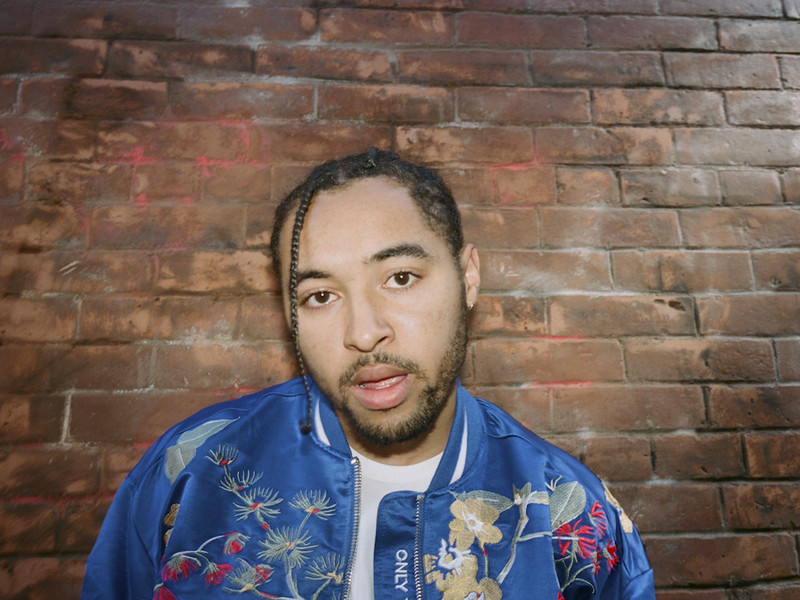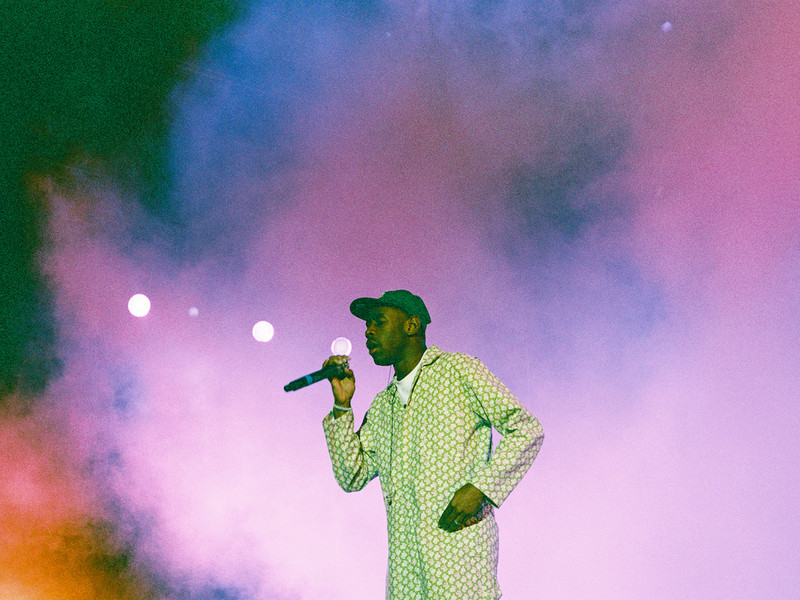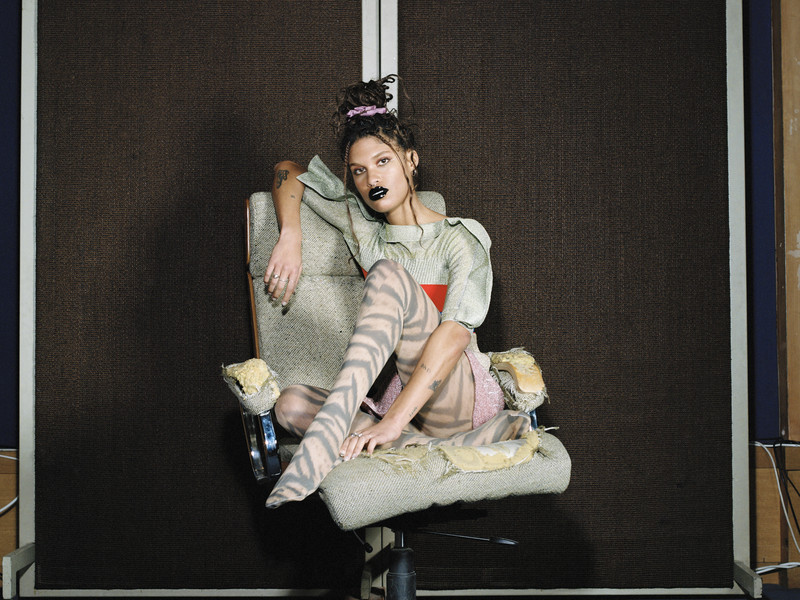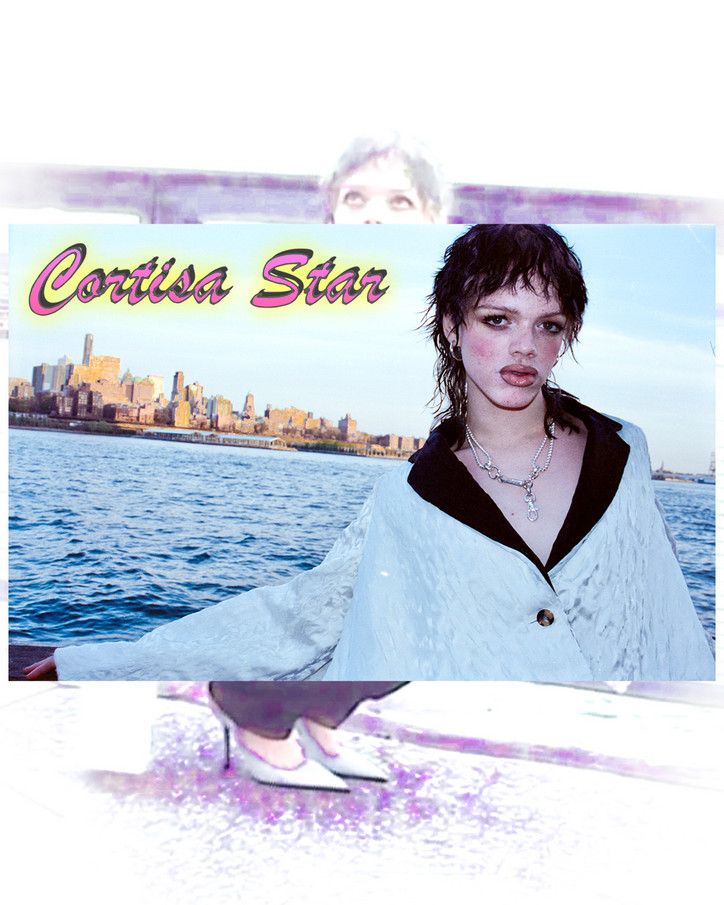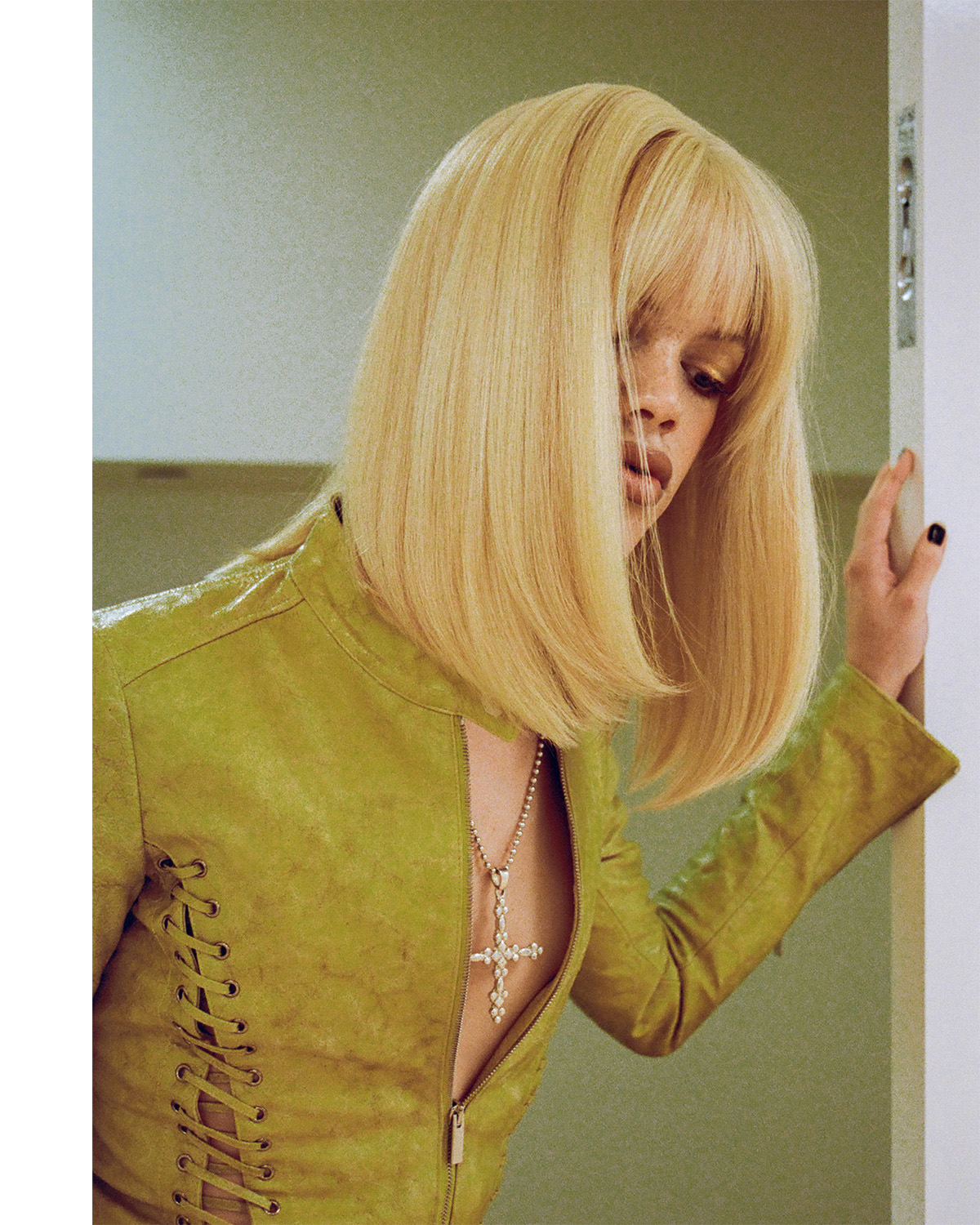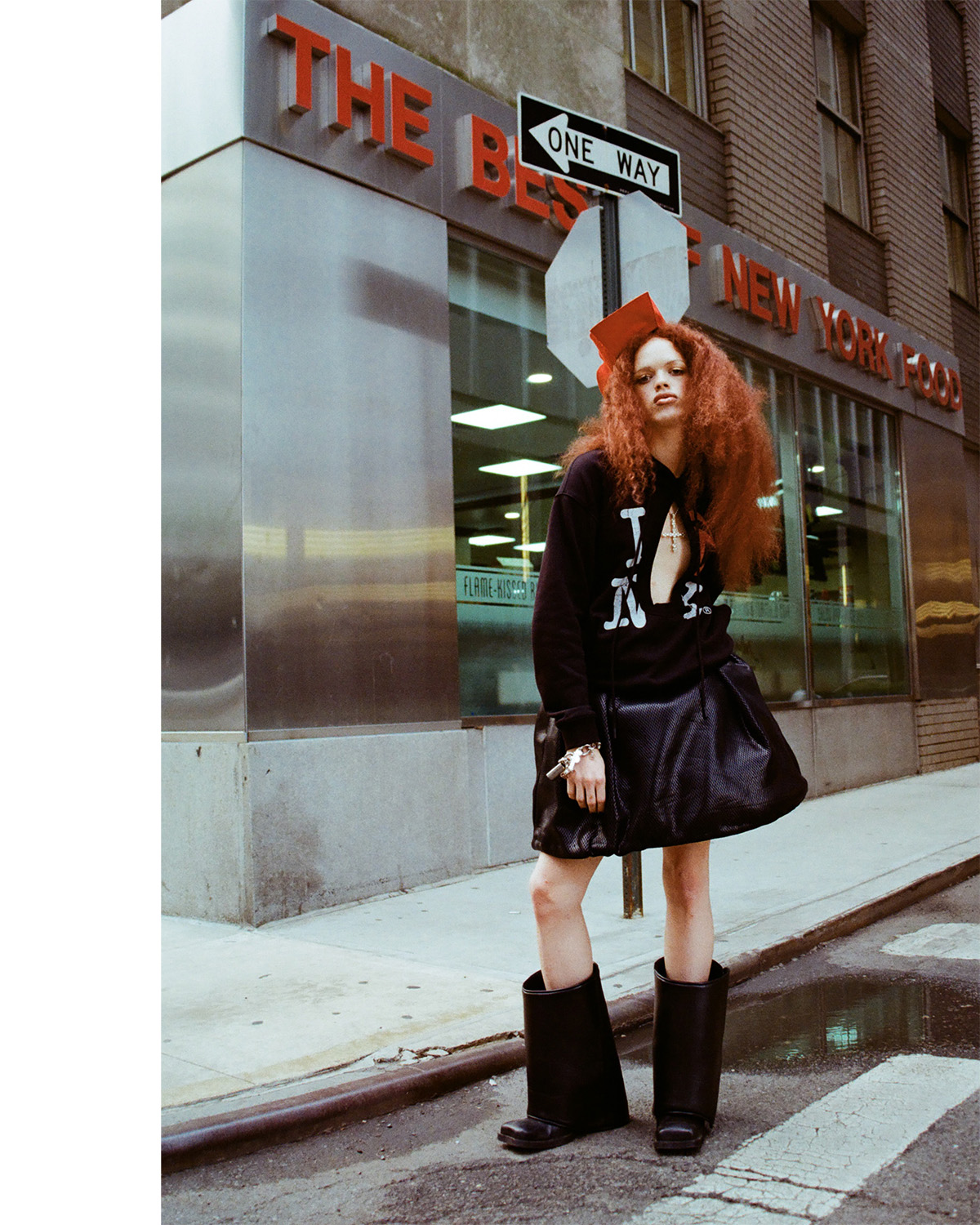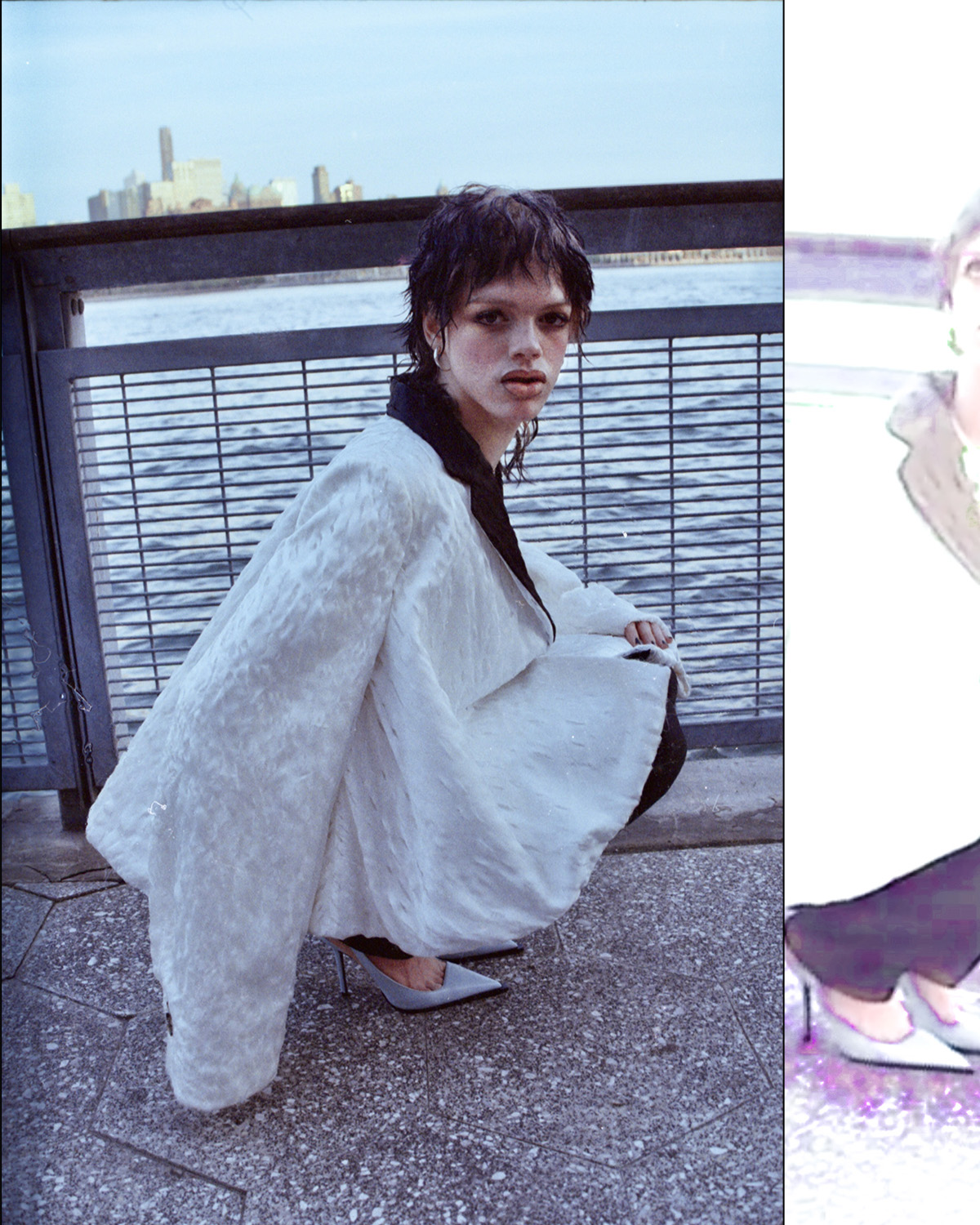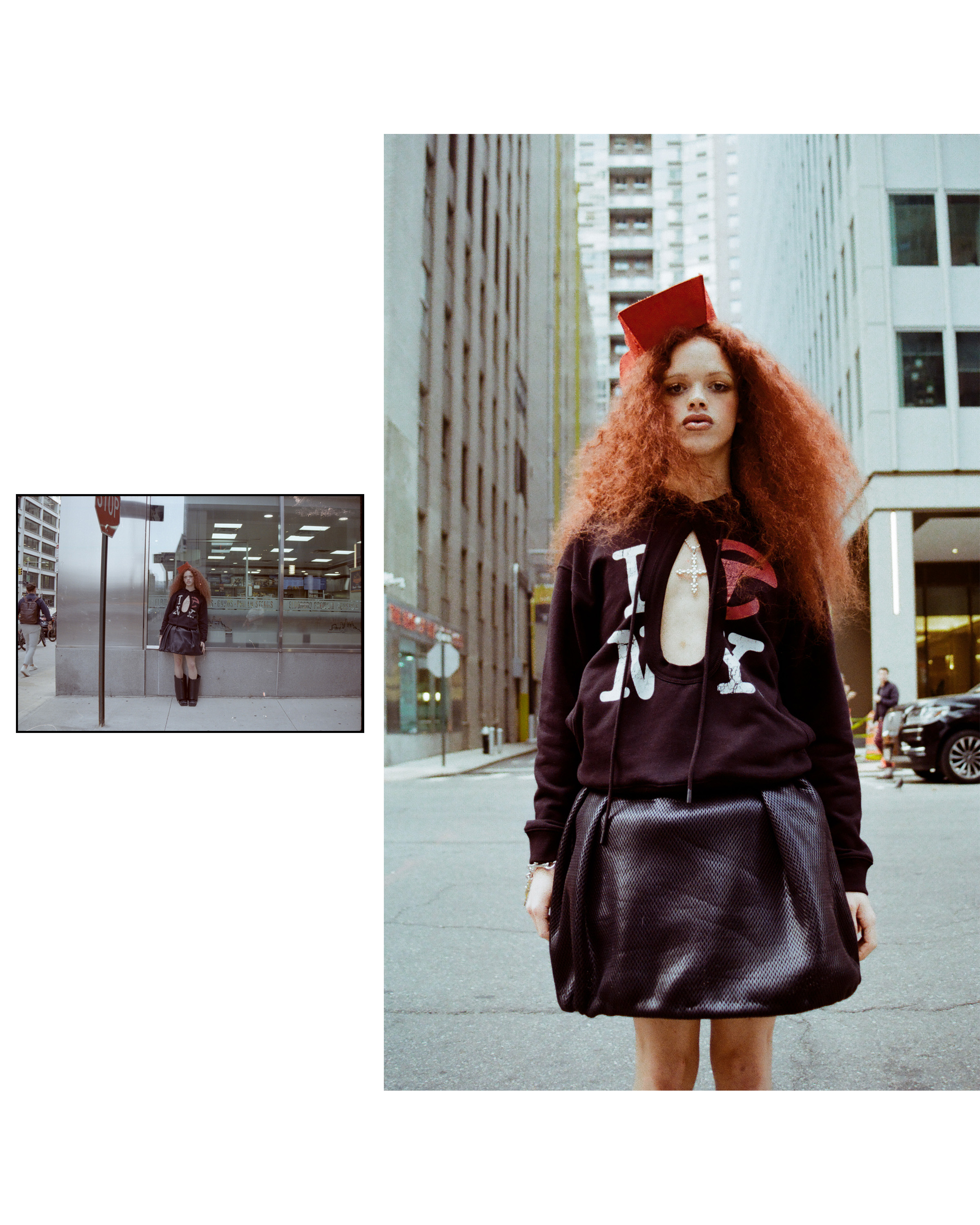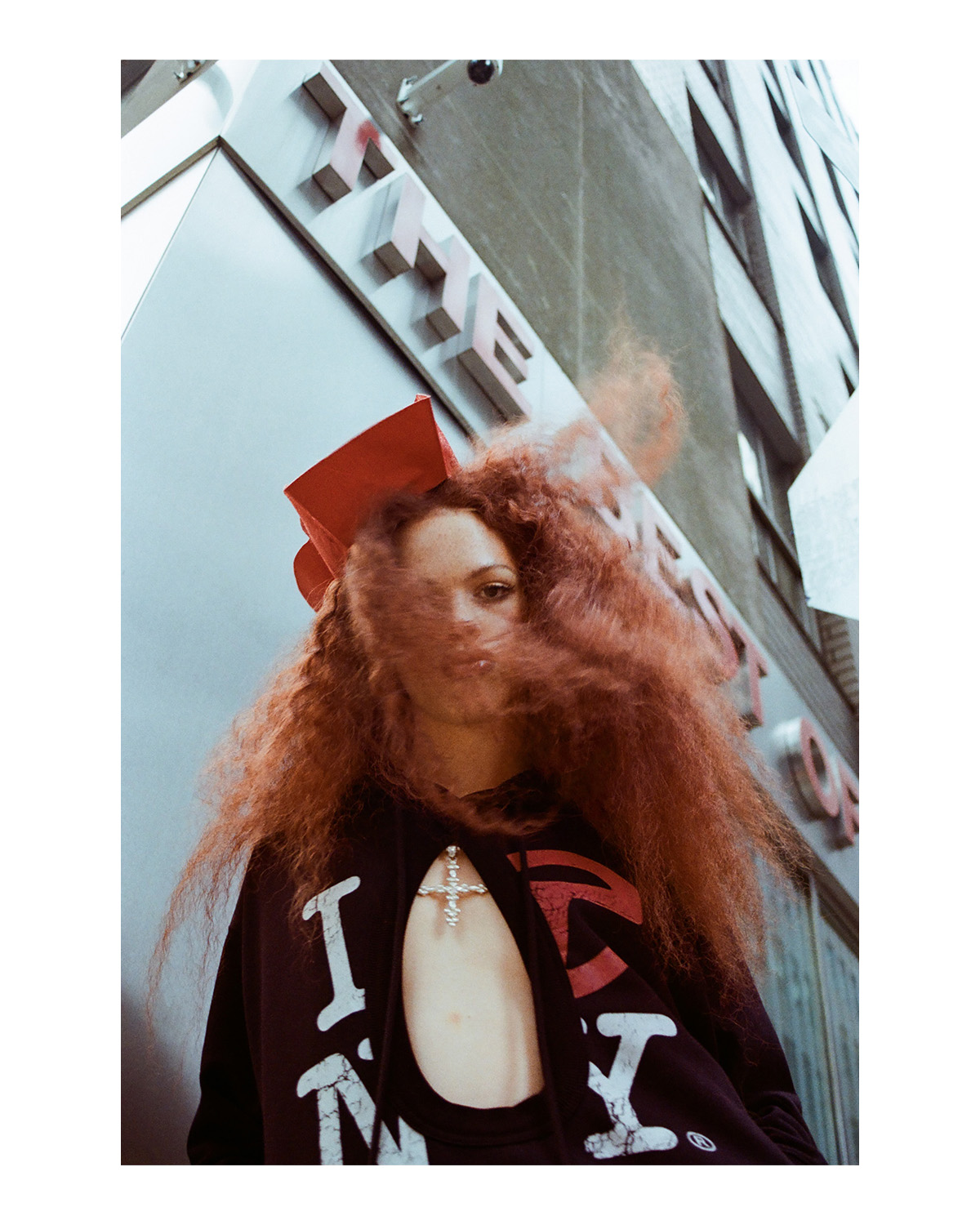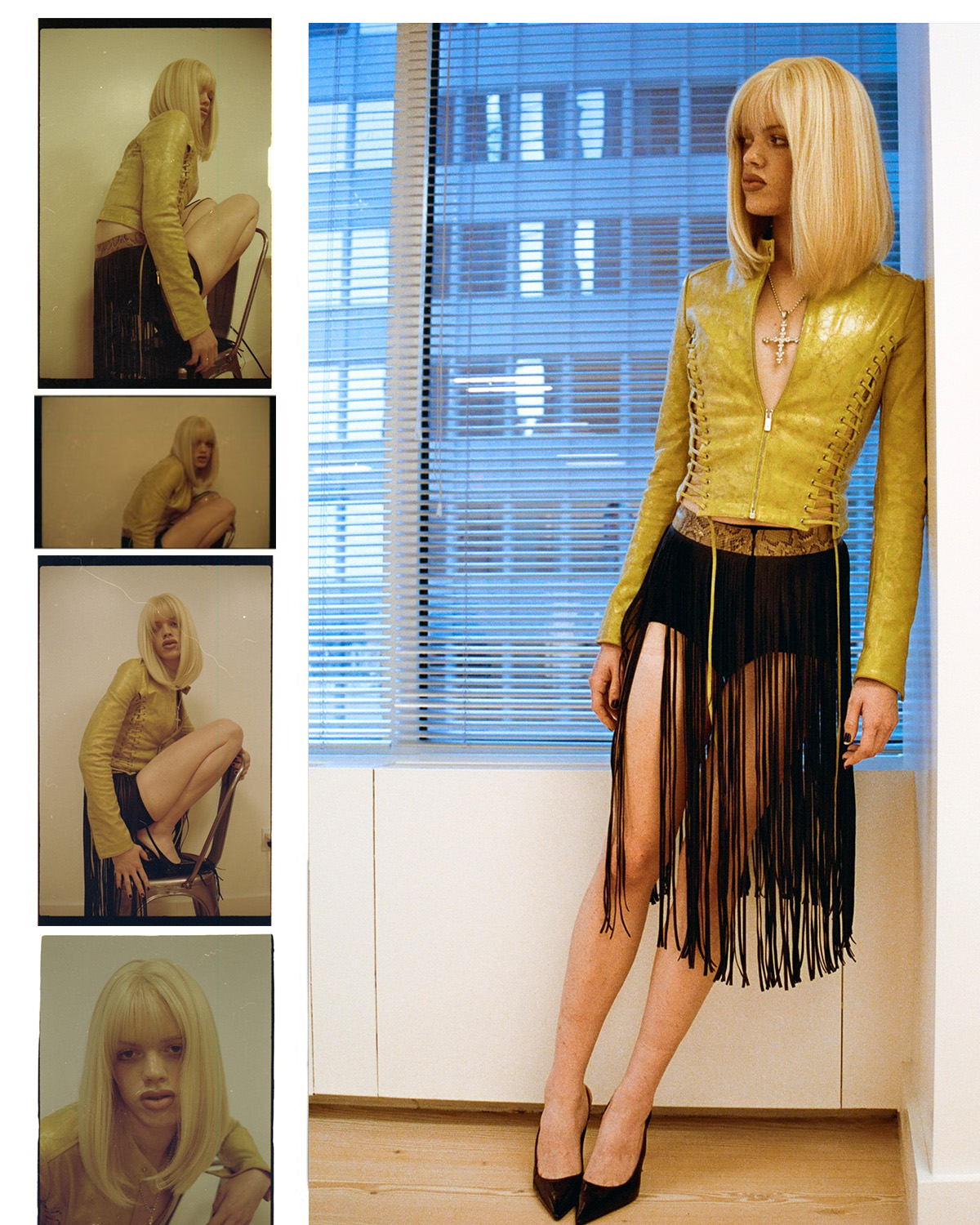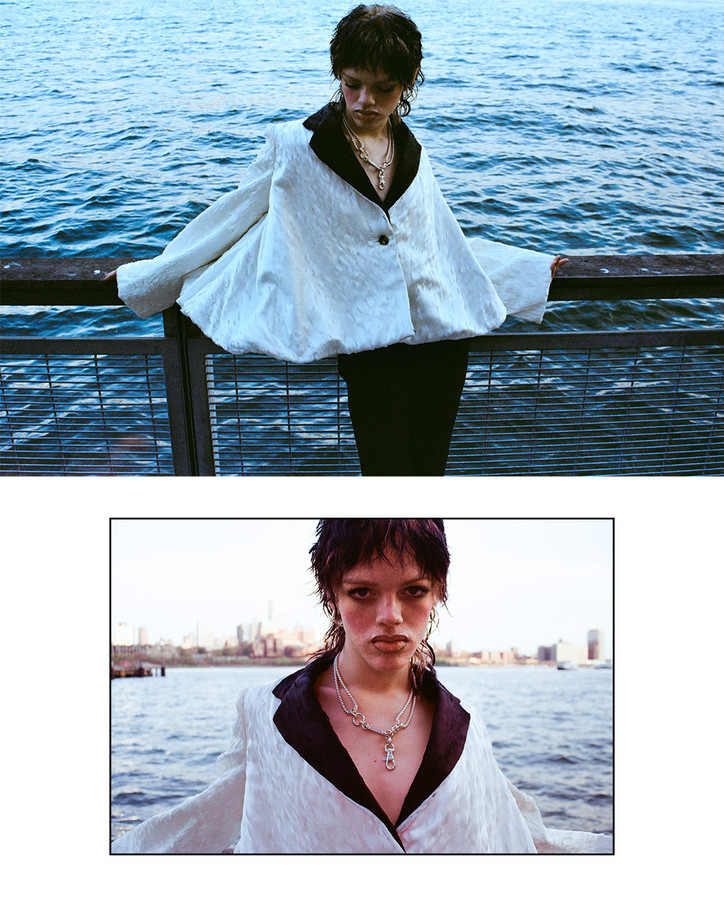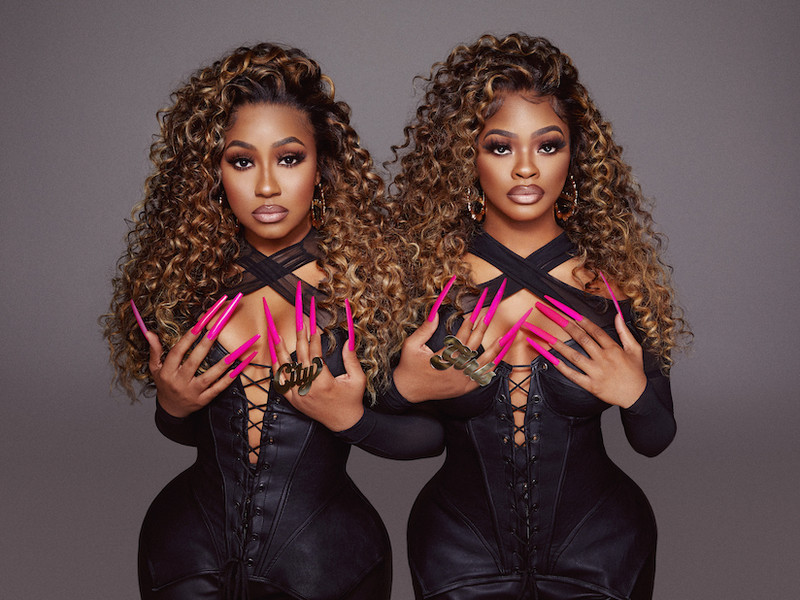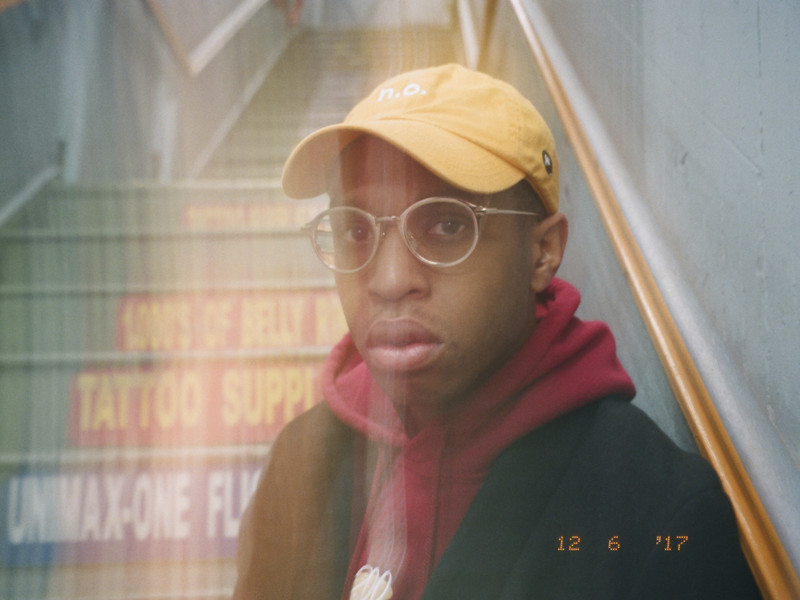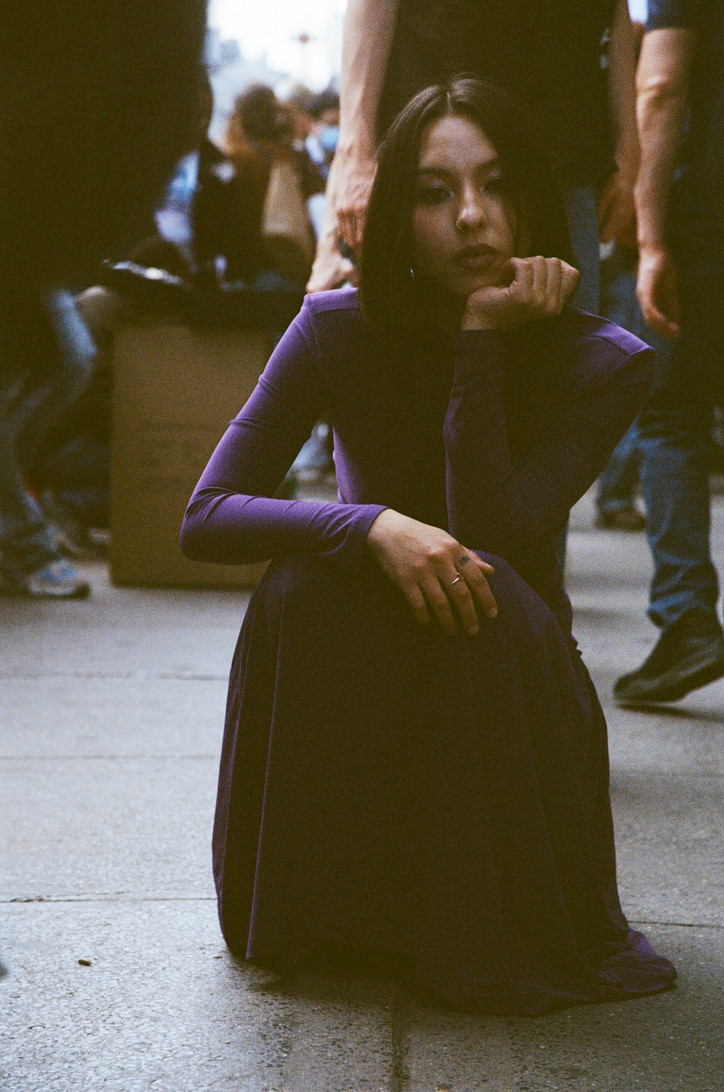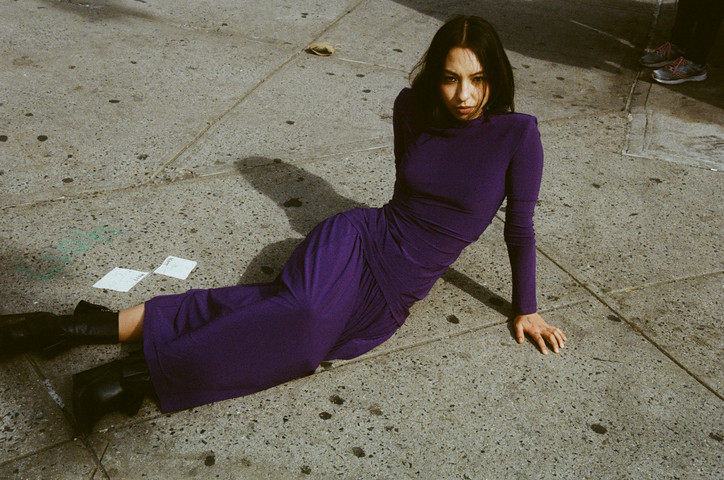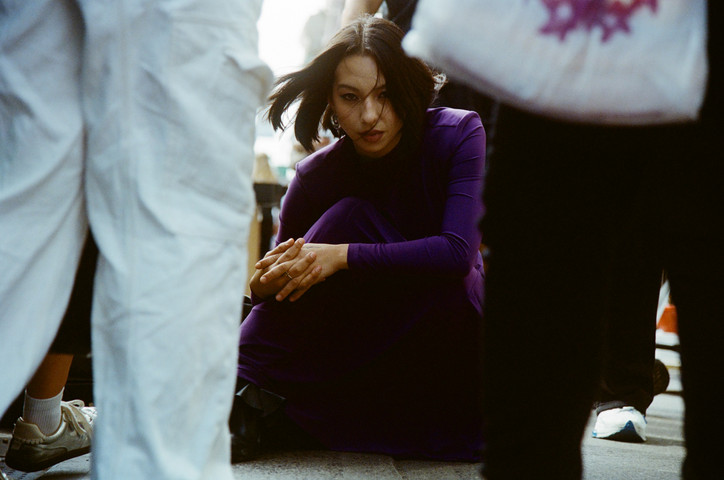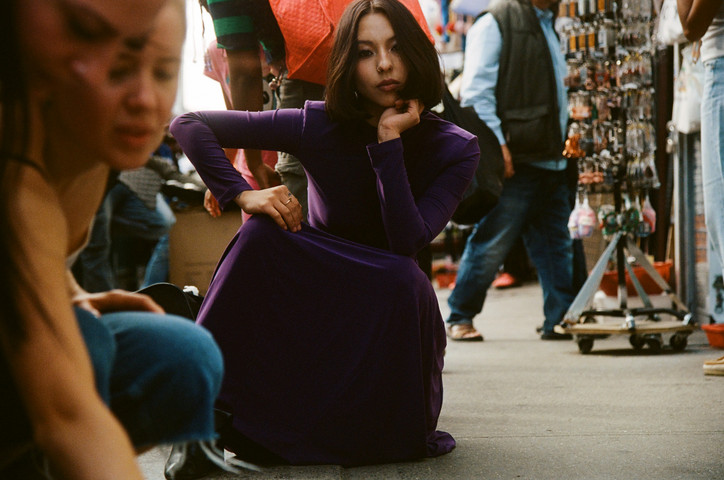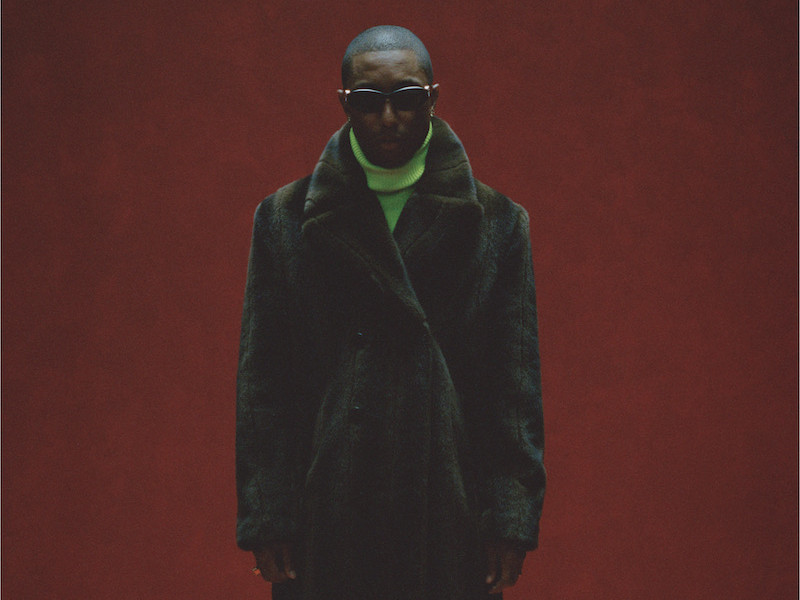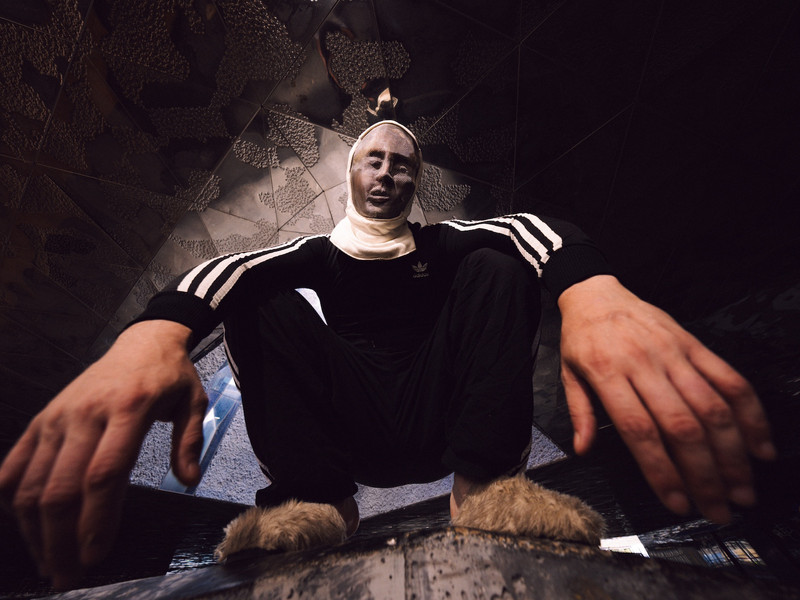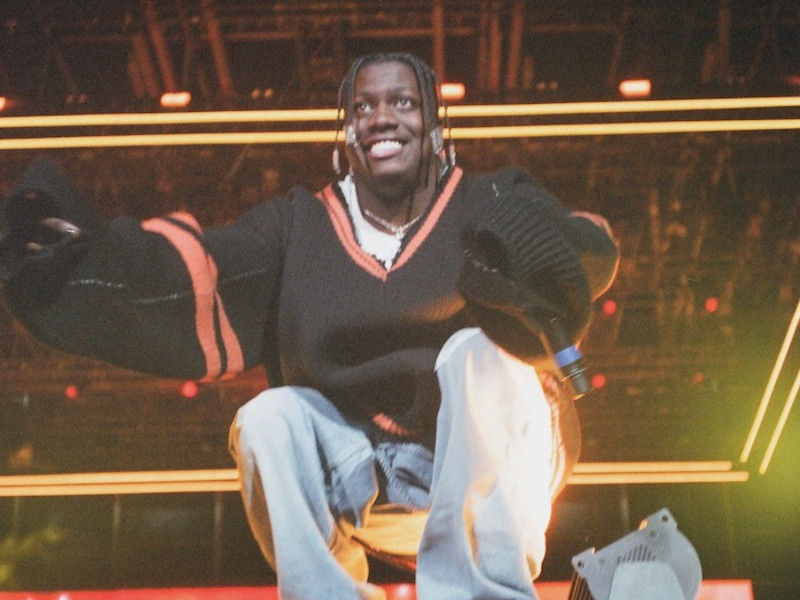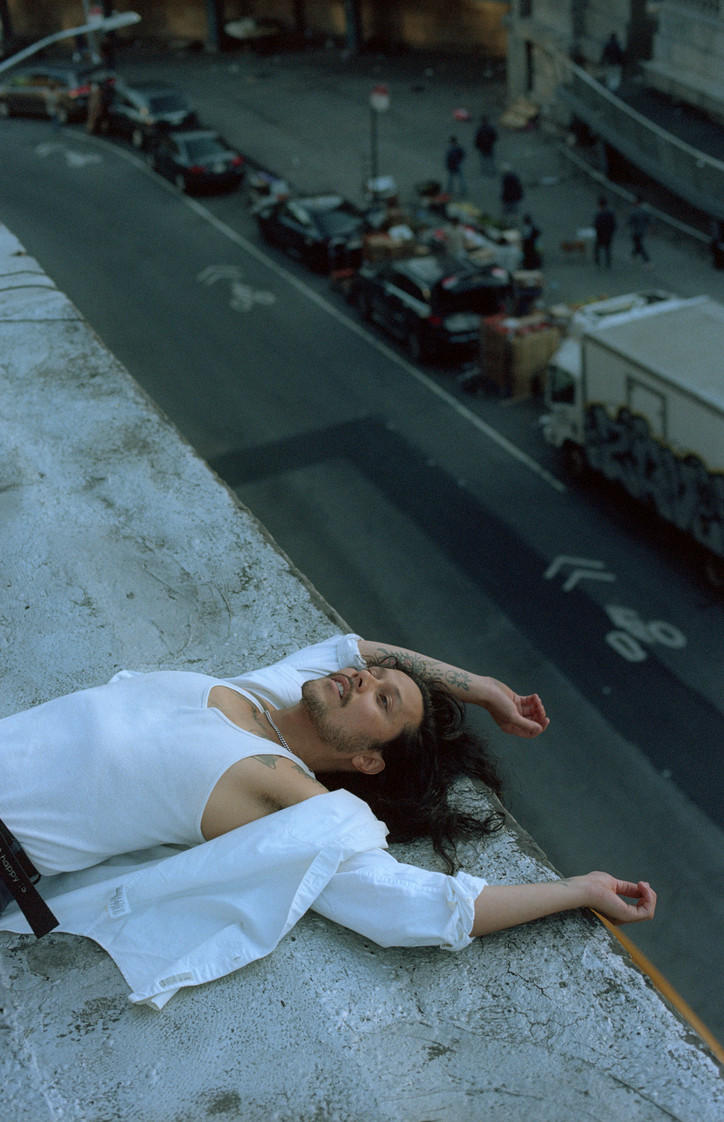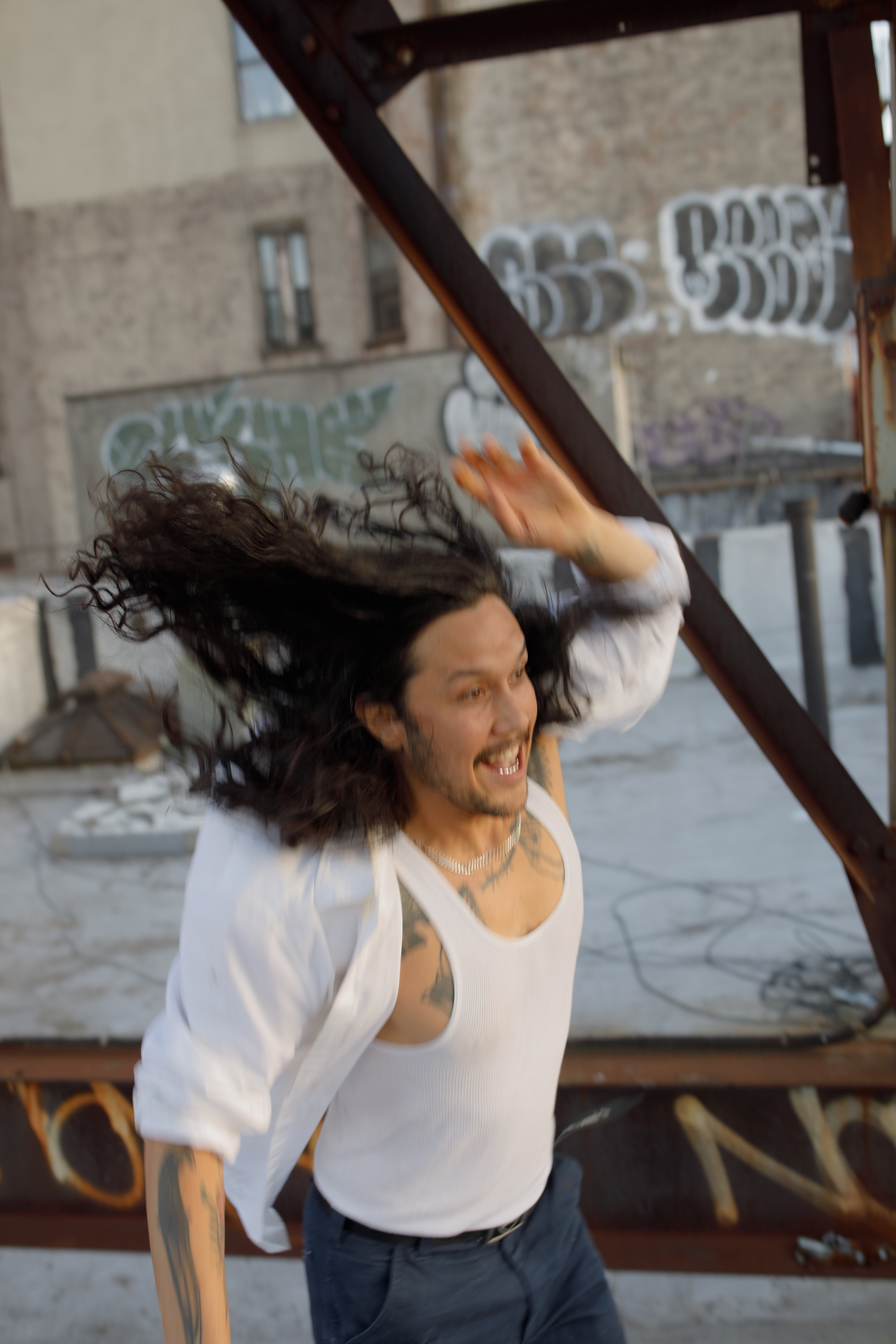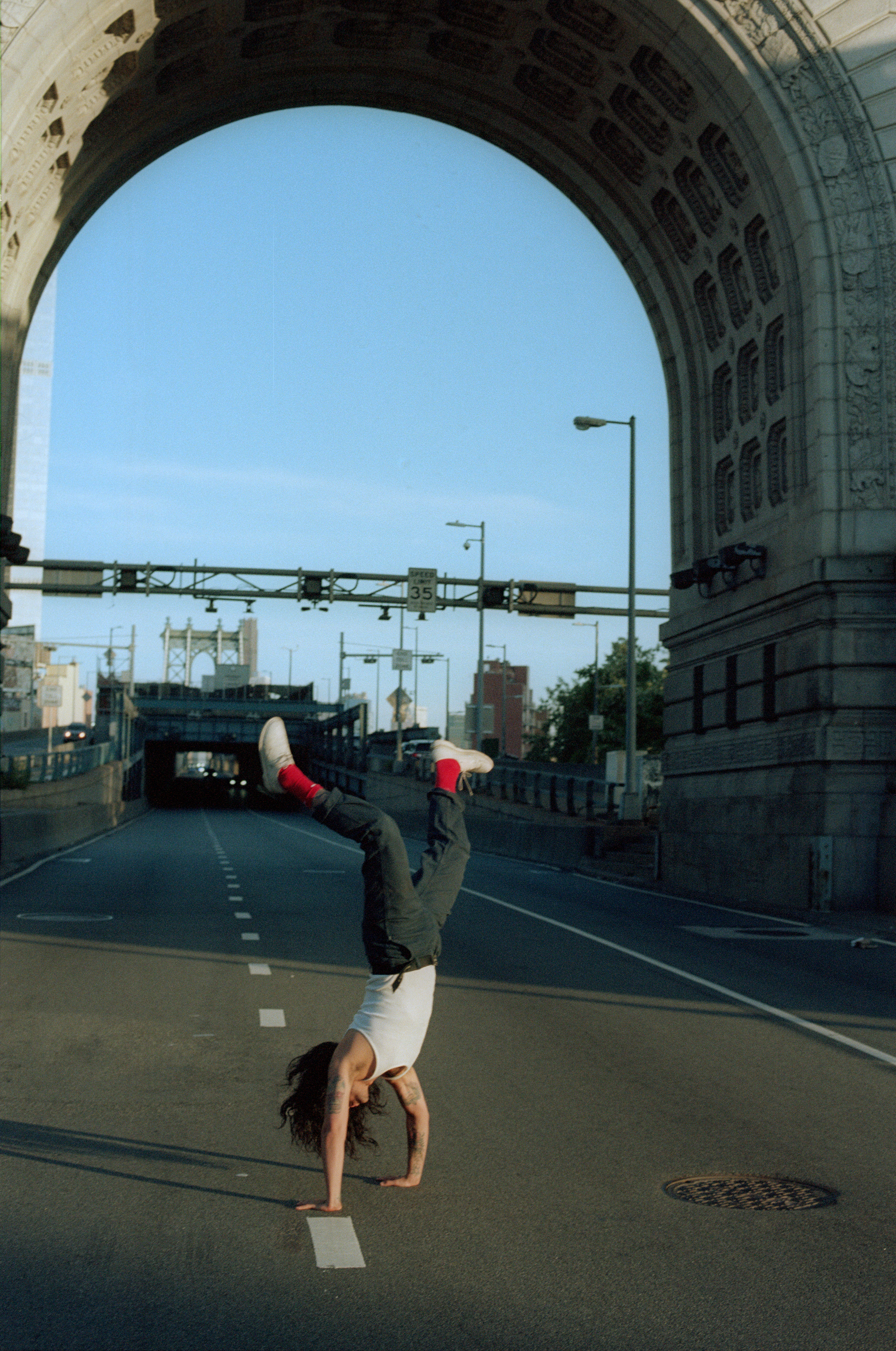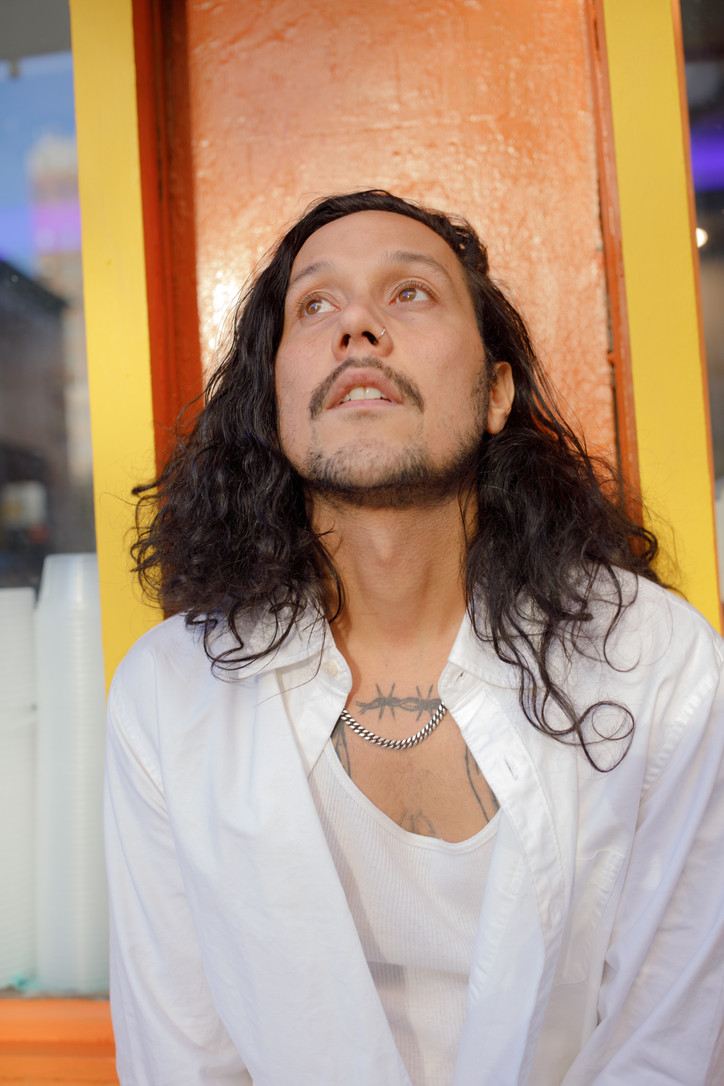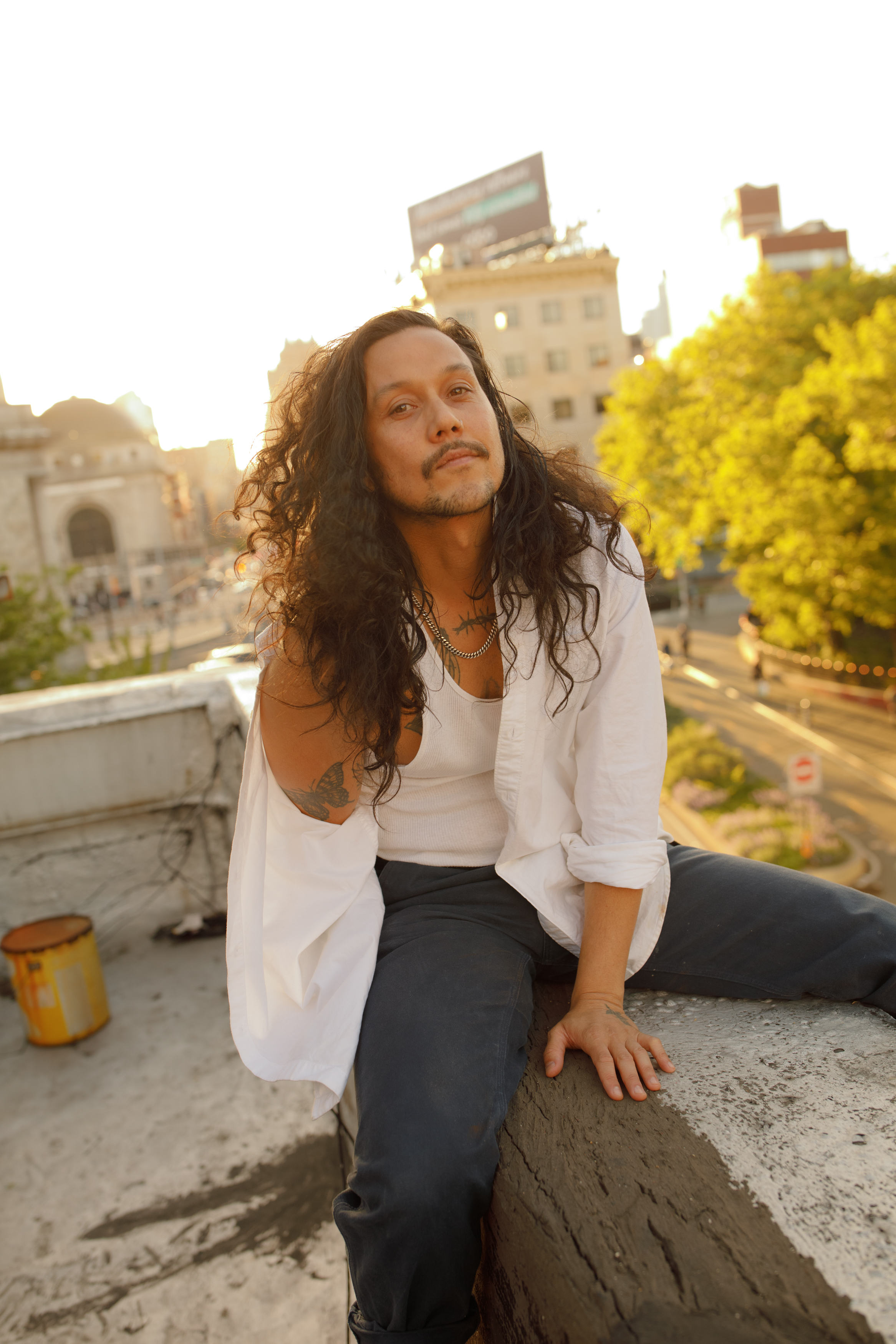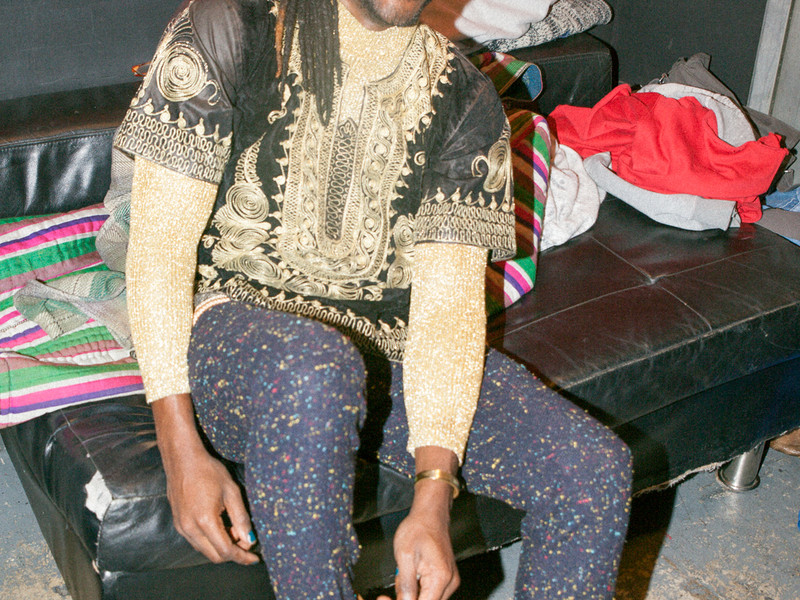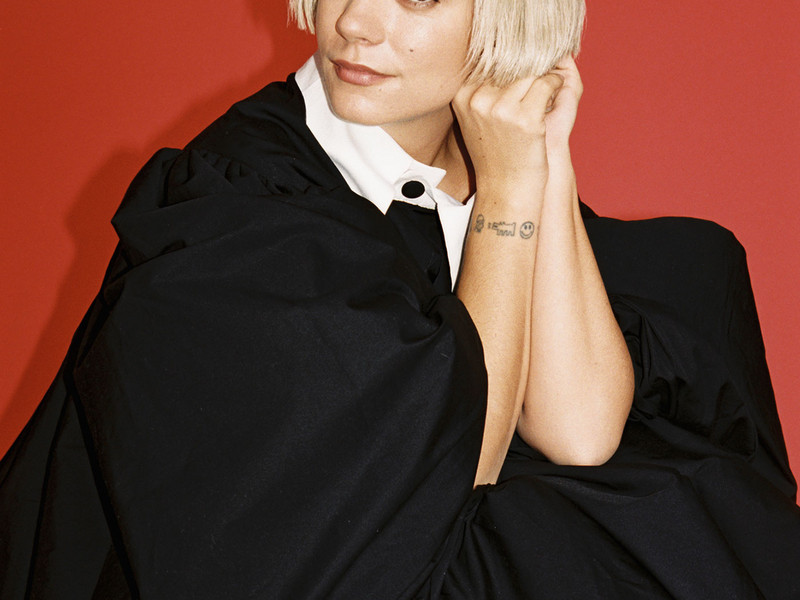A Date With The Light: Karen O
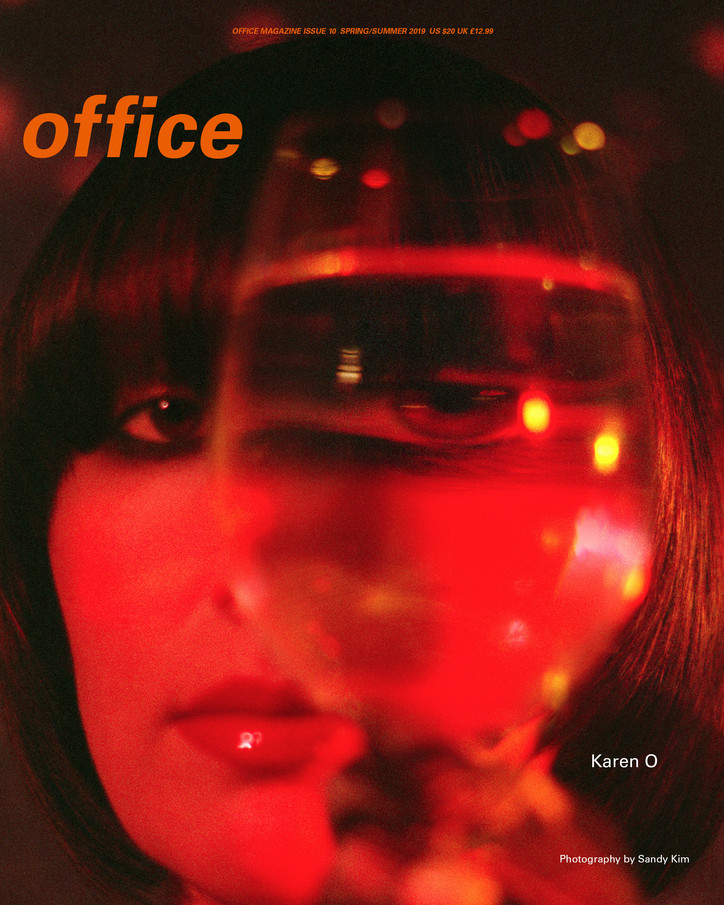
The last time I saw Karen O perform was in New York in 2014. This time, she stood upright on stage in a blue velvet dress, her hair grown out past her shoulders. Instead of screaming, she sang—almost whispered—the lyrics to Crush Songs, her debut solo album. A lot had changed in the decade since I’d seen her in San Diego. The Yeah Yeah Yeahs had released three more albums and would soon go on hiatus; Karen had married, and was soon to be a mother.
Fast forward five years—fifteen since first seeing the Yeah Yeah Yeahs in California—and I’ve got Karen on the phone. Joining us is LA musician Moses Sumney, who performed with Karen on the Crush Songs tour before releasing his acclaimed debut record, Aromanticism, in 2017. The contemporary music industry that lauded the album, a fast-paced world of digital streaming and bankrupt record stores where audiences are voracious and music is released at warp speed, is a far cry from the one that birthed Fever To Tell a decade and a half ago. And yet it’s still hungry for Karen O.

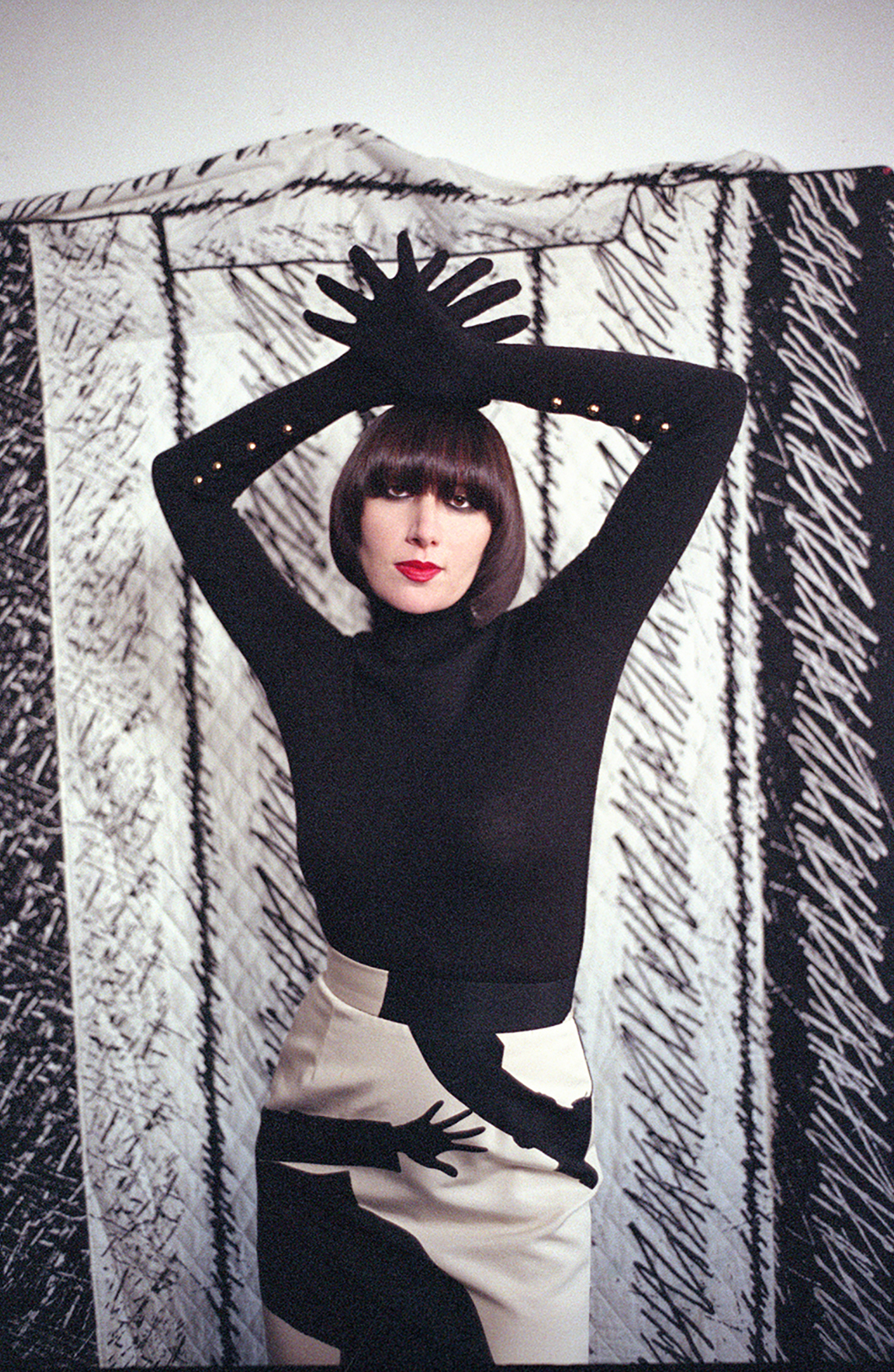
Dress by Vintage Biba (from Decades, Inc.), gloves by Dries Van Noten, shoes by Fendi, necklace by Gabriella Kiss (from August LA), ring by Mondo Mondo (left); Top and skirt by Moschino (from Decades, Inc).
This March, she will release Lux Prima, the record she wrote and recorded with Danger Mouse while Moses was working on his debut. As the two of them catch up, Karen tells us about the record (“soundtrack-y” with a “Phil Spector-y” kind of vibe) and the anxiety that comes with releasing it into the wild. She also reflects on how motherhood has impacted her career. In both cases, she’s figured out a way to embrace uncertainty and accept the inevitability of sometimes fucking up. But as she prepares to introduce new music with a new collaborator into what’s essentially a new industry, she can’t shake the daunting, nervous feeling—“What’s going to happen to our baby?”
In 2004, that question might have plagued Karen, but today she’s wiser. “We just wanted to make something that excites us,” she says of the album. “Then, when you’re finished, hopefully you’ll feel good enough about it and yourself, that whatever happens in the world, you can be happy and stand behind your work.”
KAREN O — I did. I like it whenever someone just totally fucking goes for it, and [Luca Guadagnino] really just fucking went for it with that one. I really respect that—mad props when people just go all in.
MS — Were there any movies or music from 2018 that you really enjoyed?
KO — Honestly, my concept of time is just completely all over the place—I have no idea what came out last year. I think it’s because I’m a mature mom—I’m pretty sure the grey matter in my brain is pretty much destroyed from it. But movies I saw that I liked were Roma, The Favourite, and I really liked Cold War. It’s a Polish film and I’m half Polish, so it really resonated with me. Music, though—music is harder. I’m just having trouble with the whole industry, and I’m quite old-fashioned when it comes to how I listen, so I have no idea what came out when. When I like a song, I just like it—it could be from any year.
MS — You’ve got this new album coming out with Danger Mouse, but it’s been a few years since the last Yeah Yeah Yeahs record—even Crush Songs came out in 2014. What does it feel like for you to be releasing music in this current era, where everything moves so quickly? Do you feel excited about it? Or do you feel nervous and scared? Or are you sort of indifferent about the changes in the industry and are focused more on your art and life?
KO — I started getting nervous about releasing music into a vacuum back in 2006. Now, we’re in 2019, and everything is just warp speed. It’s completely changed since 2006. I entered the scene in 2000, and our first record came out in 2003, when it seemed like there were only a handful of releases that everybody knew about. If there was any buzz about a record, it actually had a huge ripple effect on the niche indie scene, but you could also make a mark on the mainstream in a tangible way. A record cycle would last for a year and a half back then, and that’s the world I got started in. So, it’s been hard wrapping my head around how short the shelf life is. But now, when I do release a record, like the one with Danger Mouse, the good thing about it—and the good thing about what you do, as well—is, when we started this record, we did everything out of pocket, with no expectations from anybody. We just decided to do what we wanted to do and not worry about singles, or pressure, or anything like that. We just wanted to make something that excites us and makes us happy. Then, when you actually have to put it out into the world, you feel kind of like, ‘ What’s going to happen to our baby? Is she just going to be thrown out of the window with the bathwater?’ At the same time, if even just a couple of people really dig it, and it really resonates with them, then we can’t regret it, or wish we had done something else.
MS — Well, luckily, both of you do have such big followings. But the shelf life of the music industry now is incredibly daunting.
KO — Yeah, I mean, you used to just have to put out a few music videos, maybe play on some TV show, and that was it. Now, it’s just a whole different thing. Making the record is the best part, even though it can be the hardest. It’s everything else—the three billion other things you have to do now— that gives me anxiety. But, with all that being said, I do truly believe that music is the best, and it’s a big deal that people actually want to listen to my music.
MS — When did you and Danger Mouse meet? And at what point did you decide to actually make music together?
KO — We actually met in 2007. We wanted to make music together back then, but it didn’t really pan out. Then we would see each other at gigs here and there, or run into each other in New York City at a bar or something, and finally, in 2015, we had dinner and decided, ‘Okay, it’s time for us to just get into the studio and see what happens.’
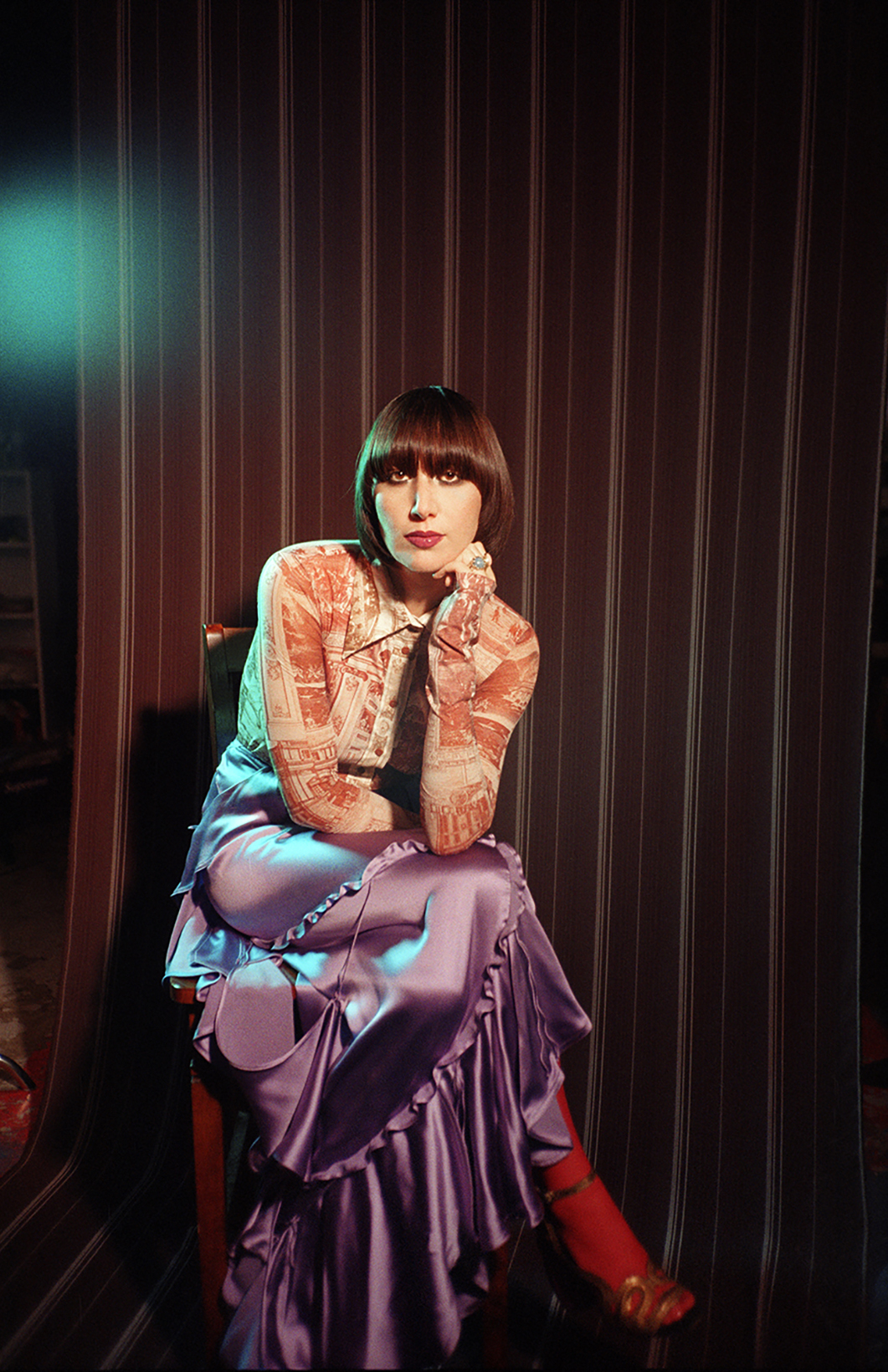
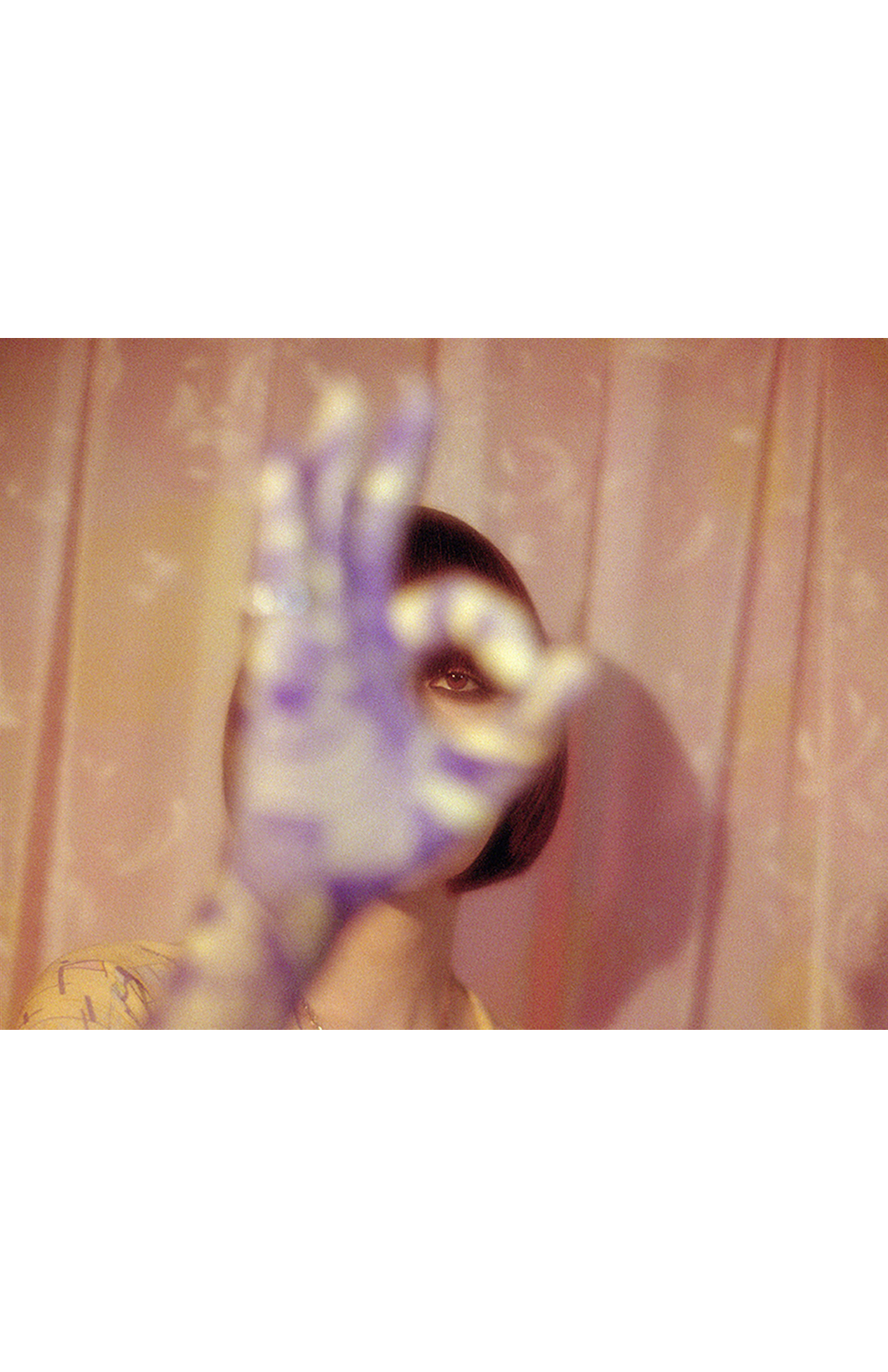
Shirt by Acne Studios, vintage skirt by Yves Saint Laurent, shoes by Dries Van Noten, rings by Gabriella Kiss and Mondo Mondo (left); Dress by Vintage Biba, gloves by Dries Van Noten (right).
MS — Releasing the album as Karen O and Danger Mouse, did you ever think of coming up with an actual band name?
KO — I know I never wanted to come up with a band name—I already have a band. But it also just felt like a true collaboration, and a partnership in every sense.
MS — What does Lux Prima mean?
KO — It means ‘First Light.’
MS — I really love the record, it’s really beautiful. When I listened to it, I tried to listen really carefully to all of the lyrics, and I wondered if there’s a connection or an overarching theme to all the songs. Also, what was the songwriting process like?
KO — I’d never worked with Brian [Burton (Danger Mouse)] before, so we both had to figure out what each other’s processes were, and because he’s a producer for the most part, he’s very flexible in how he works with an artist. But the way we did it was by just listening to music until it would trip our trigger, and we happened to like a lot of the same stuff: a lot of sprawling, soundtrack-y music from the ‘60s and ‘70s, and French or Italian artists. So, we’d listen to something that we both liked and start with a Phil Spector-y kind of vibe and just see where it went from there. Lyric-wise, he told me that the majority of songwriters that he works with just come up with a vocal melody, and they deal with lyrics at the very end. But that’s just so alien to me. I come up with words as I go along.
MS — That takes so long. I always write lyrics last.
KO — Yeah, and it can be a huge waste of time, just sitting there, wracking my brain, while we’re in the studio. But that’s just the way I do things—I can’t write any other way, especially because I feel like it’s so important to have an idea of a theme, or a subject. That really guides me with the storytelling and what I feel like the songs are about, and that ends up affecting the melody.
OFFICE—Thematically, both of you write a lot above love, just in different ways. For Karen, some of your most famous songs have been about your relationships, or crushes; Moses, your last record was called Aromanticism. On the surface, those seem like opposite ends of the spectrum. But do you think you both write from a similar place?
MS — I feel like our music is about the same thing in a lot of ways. Maybe that’s because I toured with her, so I was able to feel the heart behind Karen’s songs, but one thing I think we both recognized very early on is that we share a similar heart in the way that we think about music and the love that goes into it. My record is not devoid of love, and I think you can hear that in the way it’s made, even if the lyrics are about isolation, and loneliness, and the absence of romance—I think there’s something inherently romantic in just discussing those feelings. So, when I think about Karen’s music or try to draw a through line between, let’s say Crush Songs and my first album, they’re actually not that different. At the core, they’re both just about connection, and in a way, that’s all the same thing to me.
KO — Absolutely. Connection is something that Moses and I have been blessed with—being able to emotionally connect with people through our music—and there’s a real, for lack of a better word, spirituality in both Moses’ and my relationship to making music. There’s a spirituality in where we go, the roads we travel within it, and at the heart of that is love.
MS — Let’s talk about the song “Woman,” which is one of my favorites on the album. There’s a real wildness and freedom in your voice, especially in the chorus, which feels like a kind of new thing for you. What’s the song about? For me, it feels like you’re playing with this duality of being aggressive and intimidating, but also being friendly and approachable. It’s really tongue-in-cheek.
KO — It is, and I was verifiably pretty pissed at the time I wrote that song.
MS — Really? Why?
KO — It was leading up to the election and I was just feeling this deep, quiet rage about how things were going backwards for women because of the leader of our country, especially when there has been so much progress. So, there was a real fire brewing under the surface. That’s also why there’s that little tongue-in-cheek element to it, because I feel like with anything that has a bit more charge to it, there has to be balance. I’ve never taken a real political stance on anything in my music or my art—I normally come from a really personal place—but I feel like I’m doing a disservice if I take even something important much too seriously. Life is not black and white, it’s a million different shades, and there’s so much absurdity. From the most horrible shit to the most beautiful, it’s just such a mixed bag, and even the worst stuff has something beautiful in it. There are always contradictions, and I always want to present them in whatever I’m doing.
MS — So, when you wrote that song, you didn’t want to just write the equivalent of, ‘This is my angry song.’
KO — Right. It’s multi-layered, like we are, and like life is. I feel like that represents the world more than being super serious about everything, or not taking anything seriously enough. It needs to be somewhere in between.
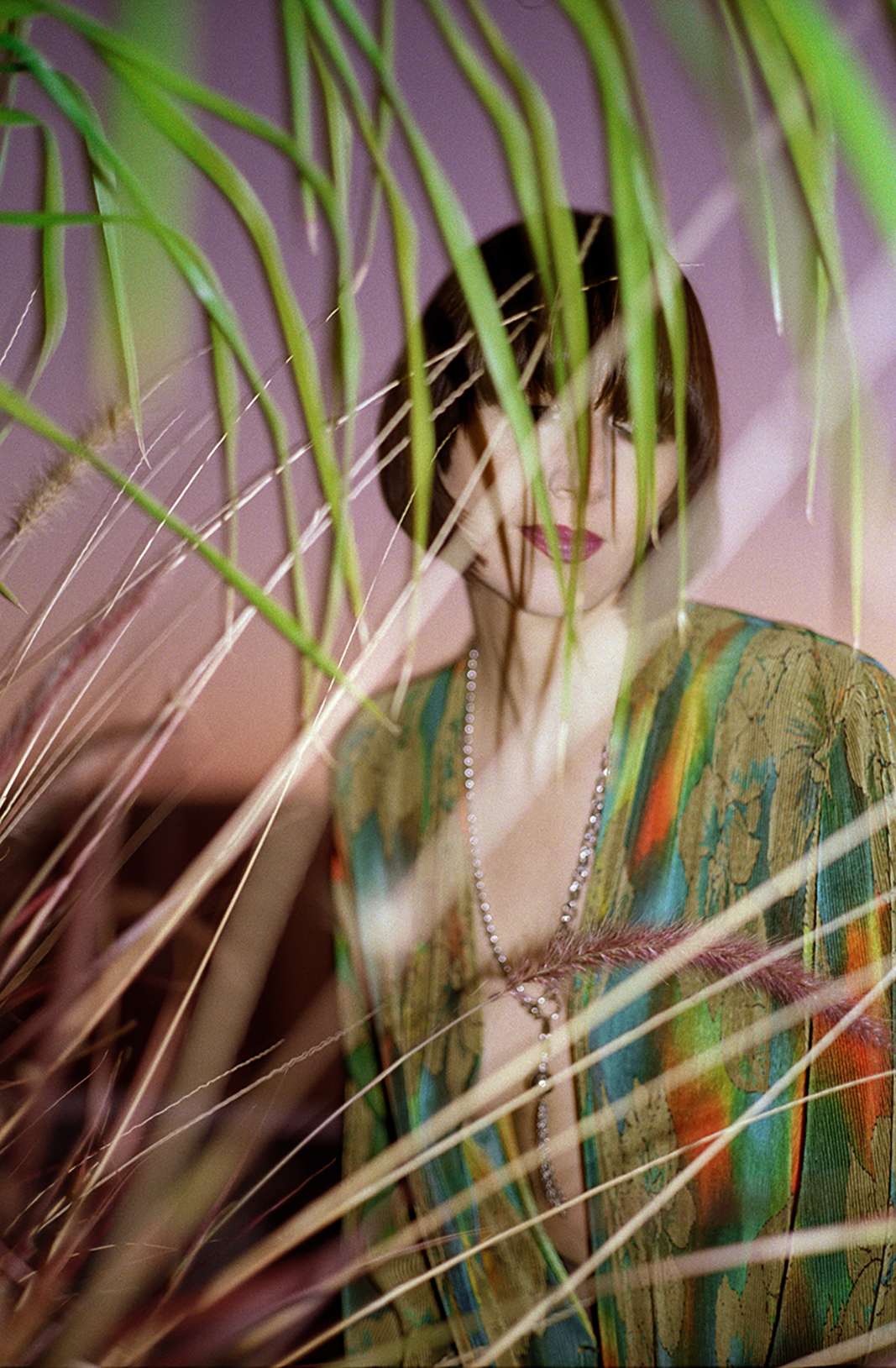
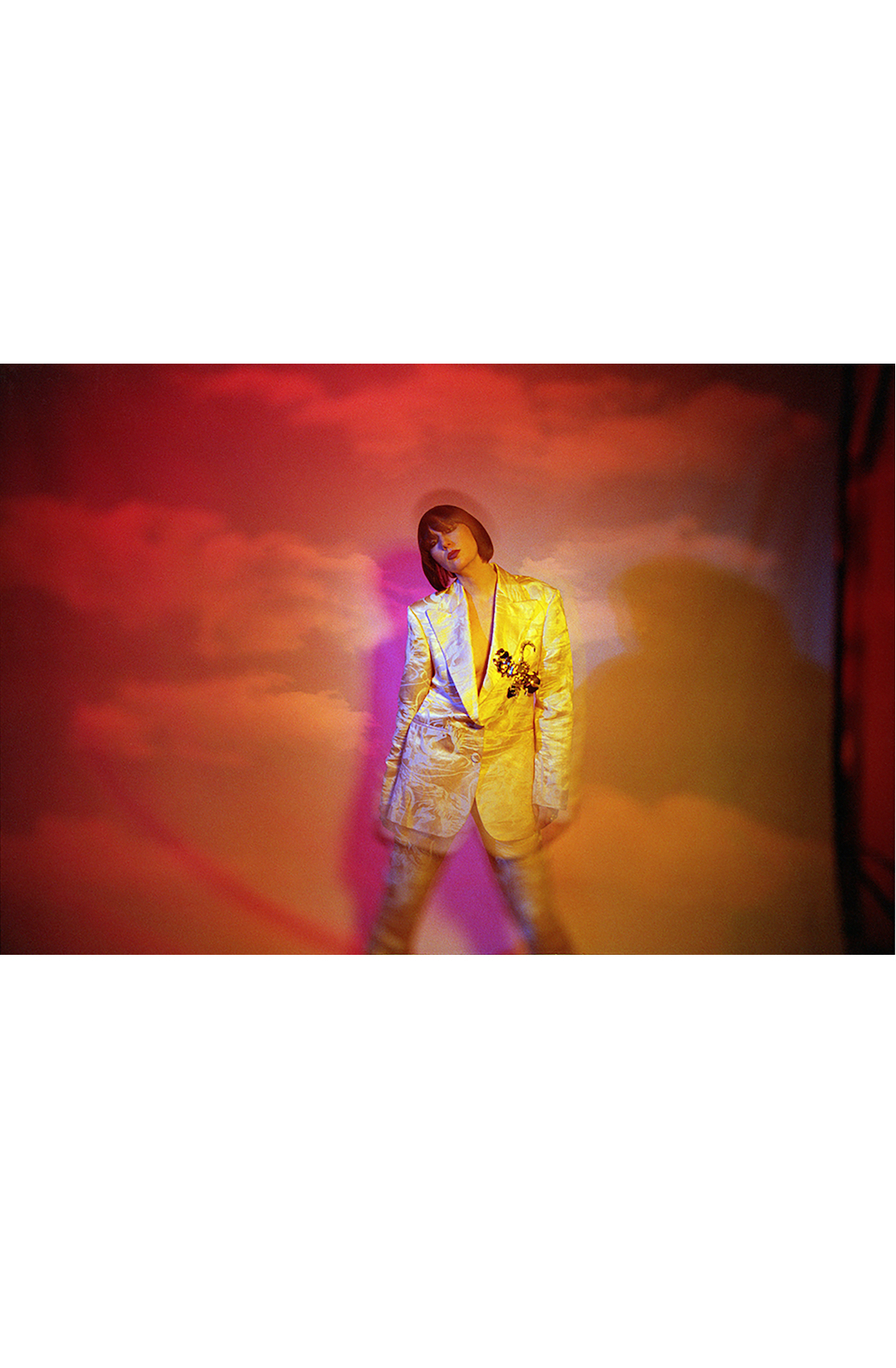
Dress by Bebet (left); Suit by Acne Studios (right).
MS — Going off of that, how do you feel about the current wave of feminism, especially how it’s playing out in the media? America is in this really interesting place, with the president and the current administration constantly rolling back protections for women, and other-bodied people, and in Hollywood, we see almost the opposite, where it’s trying to fix itself with the #MeToo movement and outing all of the men that have been fucking shit up for years and years and years. I’m always careful with this kind of question when I’m talking to female artists because I recognize it can be incredibly annoying or condescending, or even just repetitive, to constantly be hearing things like, ‘What’s it like as a woman in the music industry?’ but I do find your perspective particularly intriguing because you have been in it for almost 20 years.
KO — It’s been such a long time coming, and the message is finally out that it’s not cool to sexually harass or assault women and think you can get away with it. In my lifetime, this is a brand new thing, that it’s finally out in the open, and I feel like because it’s been such a long time coming, the heat and the rage and the energy is just so hot—it’s crazed—because the floodgates have finally opened. So, like with anything, there has to be a period of time for that initial shock, and upset, and rage, to sort itself out, so that it’s not so raw. But for me, I’m so appreciative of the #MeToo and #TimesUp movements, especially because I have a little boy, and I want him to grow up knowing that it’s not cool to treat women that way, and that society won’t accept it, instead of thinking, ‘Oh well, boys will be boys,’ like it was when I was growing up. And for little girls growing up now, it doesn’t have to be ambiguous that if someone is being creepy with you, or mistreating you, you don’t have to just accept it. Before, you’d find yourself in these situations, and especially for women in the entertainment industry, you’d want to leave, but have to think, ‘Shit, is this going to ruin my career if I ghost on this pervert?’ So now, finally, you can walk away and say something.
MS — Speaking of your son, you said in the press release for the album, that the more you’ve lived, the less was clear to you. That surprised me, because after being in the music industry for so long, one would expect that you’d be like, an oracle, and have learned all the tricks of the trade. Do you think that feeling is connected to your new role as a mother, and what you’ve been learning from that?
KO — That’s definitely a huge part of it. In a way, you start over when you have a kid—it’s a brand new life, a brand new chapter, and you actually have no idea what you’re doing as a new parent. Even though I had my son later in life, and I thought I was pretty dialed in by that point, I had him and the rug got pulled out from under me. Especially when he was a newborn, I felt like, ‘I’m not passing this with flying colors right now. I have no idea what the fuck I’m doing.’ But that’s actually an amazing feeling to have later in life, because it’s incredibly humbling, and it makes you a better person—to understand that you don’t really know what you’re doing. It’s hard, but it’s better, because it’s easier to take things for granted if you think you know everything. And life isn’t as mysterious as we think. When you cut the net from underneath you, you expand the possibility of everything around you, and that can be scary, because it also expands the possibility for all of the worst things, like loss, or failure. But it doesn’t bug you as much when you get older— loss does, of course, but not so much failure, at least for me. It generally all works out.
MS — Is there a freedom in writing songs like the ones you did with Danger Mouse? Like, do you feel less pressure to uphold a standard you set for yourself with previous music, or with Yeah Yeah Yeahs songs, since that is, in a lot of ways, your home base? I imagine that it’s maybe less personal than writing something like Crush Songs.
KO — It’s one hundred percent a different vibe. There’s just much less pressure in the sense that it’s a brand new start, a blank canvas, and you only get that once, when you work with someone for the first time. But it’s just like any sort of recipe in a cookbook—you put a couple of ingredients together, and you don’t know exactly what you’re going to get, but sometimes it turns out delicious. For that first time especially, you get the innocence back, and I just love it. Are you going to work with new people for your next record?
MS — Yeah, probably. I like working with different producers on different things, and right now I’m working with four people I’ve never worked with before. It’s been really fun and freeing in a similar way. After I made the first record I was very quickly like, ‘Oh let’s make another one because now I know how to actually make a record.’ But I’m finding now that maybe I don’t, because I’m working with new people and doing things I’ve never done before.
KO — I think any artist worth their salt would say the same thing. Even going in with Danger Mouse, it took a minute to break the ice between us because we didn’t know each other very well. One day, we would do something really awesome and think, ‘Oh my god, this is the best, we’re nailing it right now.’ Then, an hour later, ‘I don’t think I have it anymore, I lost it, I don’t know what I’m doing here and this is super embarrassing.’ It doesn’t matter how long you’ve been doing it for, or the level of success you’ve achieved, or how much experience you have, whenever you start something new, you’re starting from square one and you just have no idea if it’s going to be any good. When you’re finished, hopefully you’ll feel good enough about it and yourself, that whatever happens in the world, you can be happy and stand behind your work. — END
Issue 10 is available now. Buy it here.
